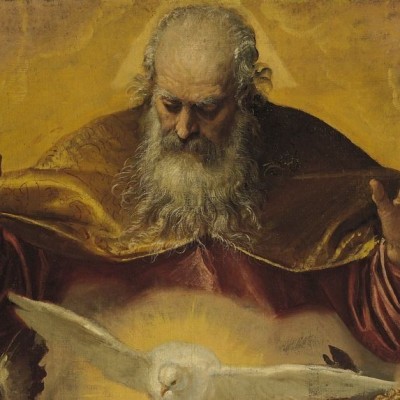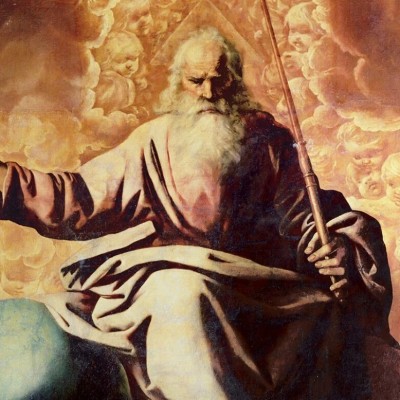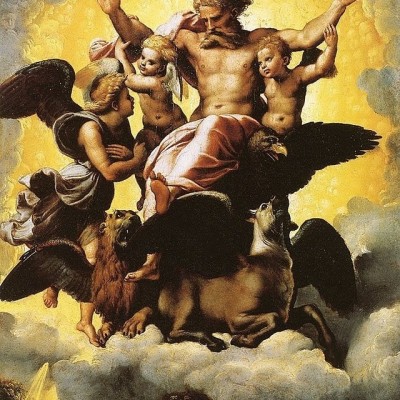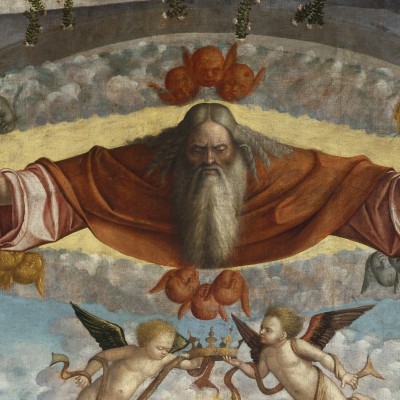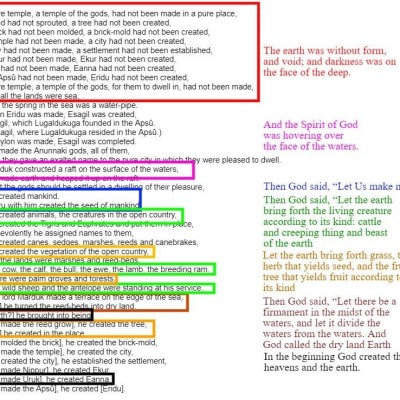God = An apotheosized prehistoric king
Title: The Founding of Eridu (Biblical Eden)
Origin: Sumer (ca 2000 BCE)
Source: - Journal of the Royal Asiatic Society, T. G. Pinches, 1891
- Keilinschriftliche Bibliothek, P. Jensen, 1900
- The Seven Tablets of Creation, L. W. King, 1902
- Keilschriftliches Textbuch zum Alten Testament, H. Winckler, 1903
- Choix de textes religieux assyro-babyloniens, P. Dhorme, 1907
- Cuneiform Parallels to the Old Testament, R. W. Rogers, 1912
======================================
Introduction
This Babylonian text was reconstructed by combining fragmented tablets, which in spite of being heavily damaged, could be identified as belonging to this single composition. Recorded throughout the Neo Sumerian to Neo Babylonian periods, this text describes the occurrences surrounding early creation, as well as the two characters who influenced such events.
We can easily see this text describes a period before creation, beginning when nothing was yet established. Line 10 mentions all the lands were sea, then shortly after Lugaldukuga establishes Eridu, the Biblical Eden. Immediately after, Marduk performs a series of tasks including the creation of the primordial waters, which were The Tigris and Euphrates being irrigated.
This text offers the same events described in Biblical creation. The creation of Heaven, Earth, the Firmament, and Man, are all mentioned here, but a much less allegorized and corrupted account. Line 20 mentions the creation of man, while on line 31 God creates a dam otherwise known as the firmament. The result of this dam is mentioned on line 33, the creation of earth. Also the creation of animals, vegetation, and more are all mentioned.
Essentially, biblical creation appears to be a corrupt account of a prehistoric king who performed these tasks.
Just below is another translation. Although mostly identical, it is a more complete version with subtle differences that may offer different or other meaningful terminology. Since many of these tales were reconstructed from fragmented tablets, in some cases one translation can be slightly different from another. Whether one or another is more accurate, or offers another term to bring deeper meaning to a phrase, it is always beneficial to review as many versions of a single account as possible.
Full Text Below
1 A pure temple, a temple of the gods, had not been made in a pure place,
2 A reed had not sprouted, a tree had not been created,
3 A brick had not been molded, a brick-mold had not been created,
4 A temple had not been made, a city had not been created,
5 A city had not been made, a settlement had not been established,
6 Nippur had not been made, Ekur had not been created,
7 Uruk had not been made, Eanna had not been created,
8 The Apsû had not been made, Eridu had not been created,
9 A pure temple, a temple of the gods, for them to dwell in, had not been made,
10 But all the lands were sea,
11 And the spring in the sea was a water-pipe.
12 Then Eridu was made, Esagil was created,
13 Esagil, which Lugaldukuga founded in the Apsû.
(or, Esagil, where Lugaldukuga resided in the Apsû.)
14 Babylon was made, Esagil was completed.
15 He made the Anunnaki gods, all of them,
16 And they gave an exalted name to the pure city in which they were pleased to dwell.
17 Marduk constructed a raft on the surface of the waters,
18 He made earth and heaped it up on the raft.
19 That the gods should be settled in a dwelling of their pleasure,
20 He created mankind.
21 Aruru with him created the seed of mankind.
22 He created animals, the creatures in the open country,
23 He created the Tigris and Euphrates and put them in place,
24 Benevolently he assigned names to them,
25 He created canes, sedges, marshes, reeds and canebrakes,
26 He created the vegetation of the open country,
27 But the lands were marshes and reed-beds.
28 The cow, the calf, the bull; the ewe, the lamb, the breeding ram.
29 There were palm groves and forests.
30 The wild sheep and the antelope were standing at his service.
31 The lord Marduk made a terrace on the edge of the sea,
32 . . . ] he turned the reed-beds into dry land.
33 [Earth?] he brought into being.
34 [He made the reed grow], he created the tree,
35 . . . ] he created in the place,
36 [He molded the brick], he created the brick-mold,
37 [He made the temple], he created the city,
38 [He created the city], he established the settlement,
39 [He made Nippur], he created Ekur,
40 [He made Uruk], he created Eanna,
41 [He made the Apsû], he created [Eridu].
.
#eatthefruitinc
